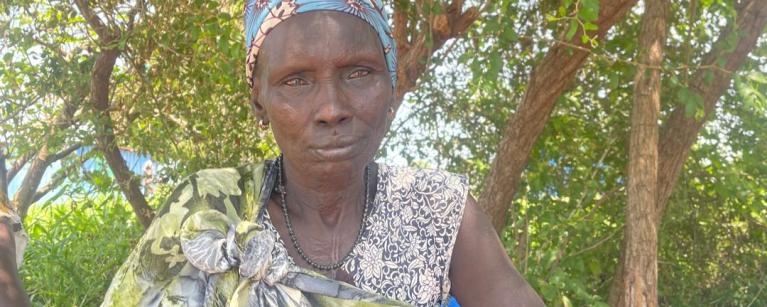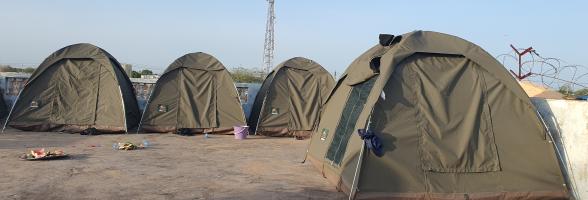As South Sudan marked 13 anniversary of Independence this month, millions of South Sudanese families continue to go to bed hungry – everyday. This number, continues to rise every year – owing to the impacts of conflicts and climate change.
Unfortunately, as in many communities across the country, women are at the forefront of the struggles to bring food to the families.
Among them is, Rebecca Korok, a mother of eight. In 2020, Rebecca faced unimaginable challenges as her family's farms were burned, properties destroyed, and cattle raided. The following year brought some relief as humanitarian agencies like Oxfam provided much-needed assistance in the form of cash support and food supplies. 2024 has proven to be even more difficult, with little to no assistance available and an ongoing economic crisis further exacerbating the situation.
The soaring prices of essential goods like sugar, oil, and flour have made it nearly impossible for Rebecca to feed her family. What was once a routine of three meals a day has now been reduced to just one, with many in the community facing severe hunger and starvation. Tragically, Rebecca lost her 15-year-old nephew to hunger, highlighting the dire consequences of the food insecurity gripping Pibor.
‘’ I lost my nephew who was 15 years of age to hunger. There is no food at home. people starve and when you go to the bush, sometimes you will get something small to eat and that’s how we sleep at night.’’
This month alone, about 12 people, including a child, women, and the elderly, have died from hunger in Pibor.
Rebecca, like many women in Pibor survive on colleting wild fruits and firwood from the bush, the wild fruits are for family consumption and if she manages to collect enough, she sells the rest, same to the firewood.
“I survive on collecting wild fruits from the bushes some I eat them and some I sell. I also collect firewood and I sell, it then I use the money to buy food stuff for my family. Unfortunately, these days even the wild fruits are not there due to the rains and the weather. You cannot find any wild fruits in the trees. I can’t find desert dates, Christ’s thorn jujube or even Jute mellow from the bushes,”
Rebecca is concerned for her children’s wellbeing.
“I always ask myself with the way things are going ,will my children survive to see next year because I have nothing to give them. I have no support financially. What I know is, these children will not survive this hunger crisis. I really hope we get assistance .”
Meanwhile, Musa Muhammed Osman, a trader in Pibor, shares the challenges, the market in Gumuruk face.
Gumuruk County is located Southwest of Pibor town, the Administrative Capital Greater Pibor Administrative Area (GPAA)
Musa says the prices of essential commodities have significantly increased due to the economic crisis and the depreciation of the local currency against the US dollar. This has led to a decrease in the purchasing power of the people, resulting in them having to adjust their consumption habits, such as eating only once a day and buying goods in smaller portions.
Furthermore, the difficulties in transportation from Pibor town to Gumuruk due to high fuel prices, poor road conditions, and potential security risks during the rainy season exacerbate the challenges faced by traders. As Musa anticipates, the situation may worsen in the month of August when heavy rains are expected, making it even more challenging to bring goods from Bor to Pibor the trucks possibly take a month before they can reach Gumuruk.
Musa detailed the prices of items consumed in Gumuruk and compared them to the prices in previous years.
The prices of essential items such as cooking oil, beans, and maize flour have increased significantly due to the rise in the dollar exchange rate.

